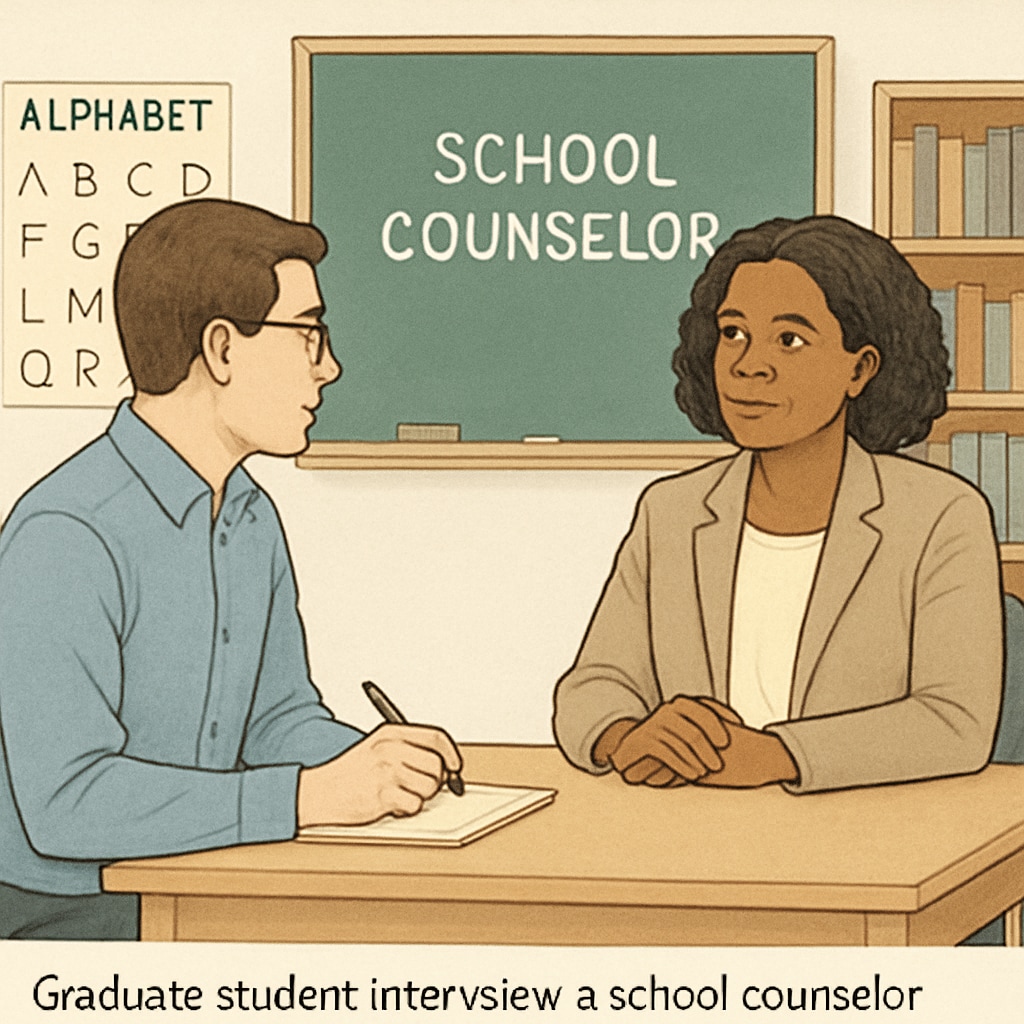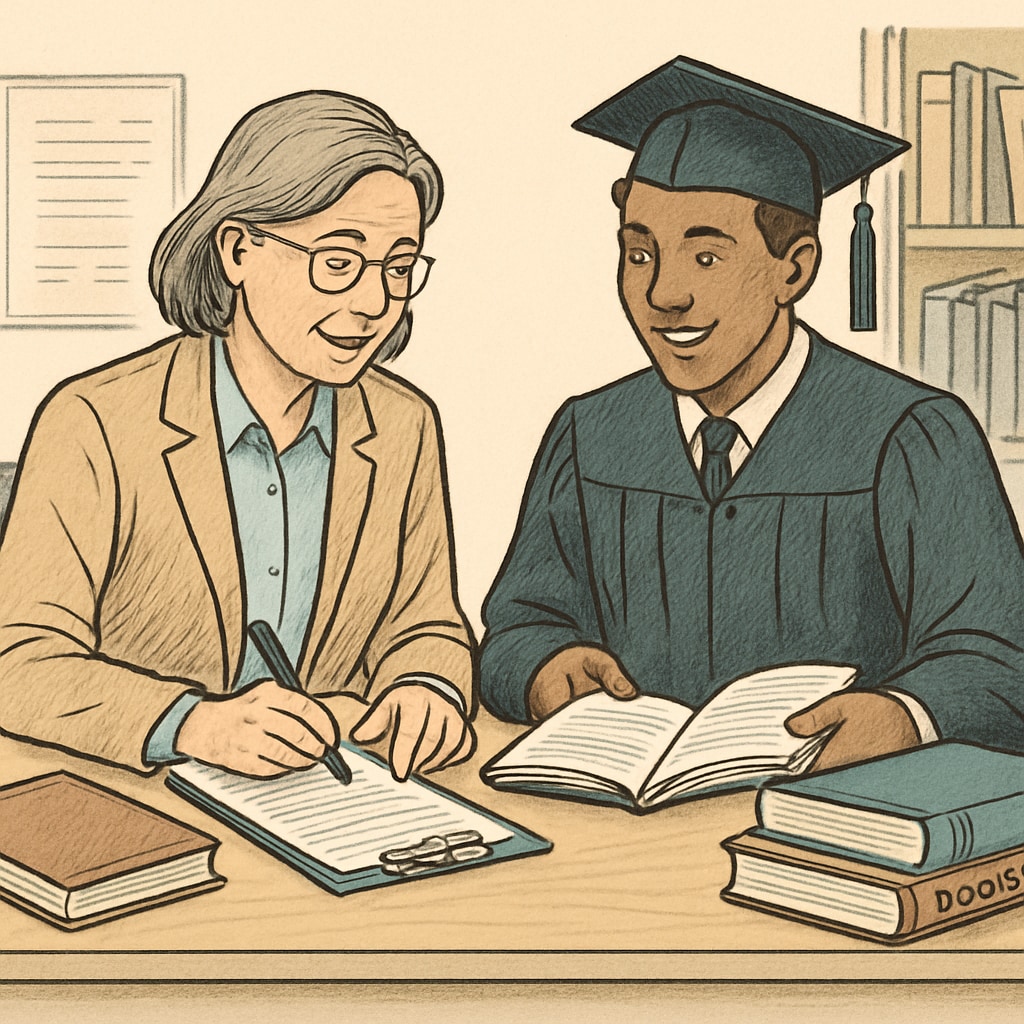Connecting graduate students with K12 school counselors for academic interviews creates a unique opportunity to bridge the gap between research and practical educational applications. In academic settings, graduate students often rely on interviews with school counselors to gather insights, understand real-world challenges, and refine their research focus. This article explores the significance of these interactions, the obstacles that can arise, and practical strategies to make these collaborations successful.
The Mutual Value of Graduate-Counselor Collaboration
The interaction between graduate students and school counselors offers dual benefits. For graduate students, interviewing school counselors provides critical insights into the day-to-day realities of K12 education, including student mental health, academic guidance, and socio-emotional learning. These firsthand accounts help researchers ground their studies in practical realities, making their findings more applicable and impactful.
For school counselors, these interviews offer the chance to voice their experiences, share challenges, and contribute to research that could influence policies and practices. It also fosters a sense of professional validation, as their expertise is acknowledged and valued in academic circles.

Challenges in Establishing Effective Communication
Despite the benefits, building strong connections between graduate students and school counselors comes with its challenges. Time constraints are often a significant barrier, as both parties have demanding schedules. School counselors are typically occupied with their duties, while graduate students must navigate academic deadlines and other responsibilities.
In addition, there may be concerns about confidentiality and the ethical use of shared information. Counselors may hesitate to share sensitive details about their work, fearing misrepresentation or misuse of their input. Establishing trust and ensuring ethical research practices are critical to overcoming these concerns.

Strategies for Successful Graduate-Counselor Interviews
To maximize the value of these interviews and address potential barriers, consider the following strategies:
- Plan Ahead: Graduate students should schedule interviews well in advance, allowing counselors to adjust their schedules accordingly.
- Establish Clear Objectives: Clearly communicate the purpose of the interview and how the information will be used to ensure transparency and build trust.
- Adopt Ethical Practices: Address confidentiality concerns by outlining measures to protect sensitive information, such as anonymizing data.
- Show Appreciation: Acknowledge the school counselor’s contribution by sharing findings or offering a token of thanks for their time and insights.
By implementing these steps, both graduate students and school counselors can create a productive and respectful partnership that benefits both research and practice.
The Larger Implications for Education
When graduate students and K12 school counselors collaborate effectively, the implications extend beyond individual projects. Their partnership can influence educational policies, improve counselor training programs, and enhance the overall quality of student support services. For example, the insights gained from these interviews could shape mental health initiatives or inform the development of new guidance strategies tailored to evolving student needs.
Moreover, these collaborations foster a culture of mutual respect between academia and practitioners. By recognizing the value of each other’s contributions, both groups can work together to address pressing challenges in education more effectively.
In conclusion, bridging the gap between graduate students and K12 school counselors through academic interviews is a vital step toward enhancing both research and practice. While challenges exist, implementing thoughtful strategies can help overcome these barriers, creating a meaningful exchange of knowledge and experience. As a result, the education sector stands to gain from a more cohesive and collaborative approach to addressing the needs of students and educators alike.
Readability guidance: Use concise paragraphs, implement lists to summarize key points, and maintain a balance between academic and conversational tones. Distribute transition words throughout the text for better flow.


